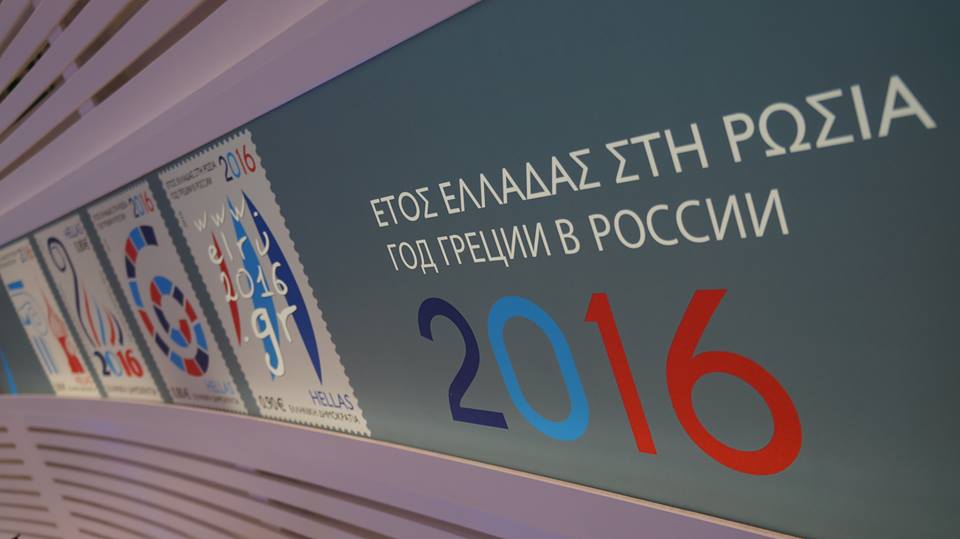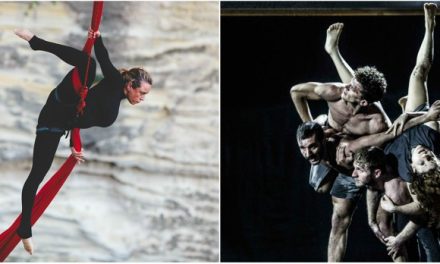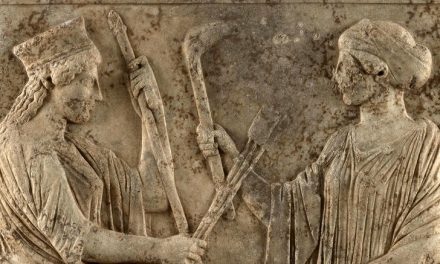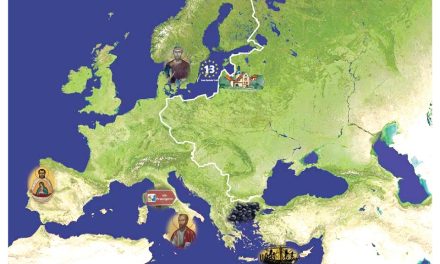2016 was set as the “Year of Greece in Russia and Russia in Greece” with an agreement signed by the two countries in 2013. The “celebratory Year” was an initiative that highlighted mutual interests and promoted bilateral relations, which Greece joined for the first time. Each country created its own program of activities to take place in the other country, depending on its interests, priorities and capabilities.
The aim of the 2016 celebratory year was to lay the groundwork for building useful partnerships of mutual benefit with substantial economic results, extend Greek accessibility to wider strata of Russian society, open up new areas of scientific, academic and business synergies and seek new markets for tourism and Greek products.
The Secretariat General for Media and Communication was responsible for communicating and promoting all the Greek actions and initiatives. Its main responsibility was the design (in cooperation with the National Technical University), the management and updating of the bilingual (Greek and Russian) official website of Year 2016 (www.elru2016.gr), which played a central role in promoting Greece and the program of actions. Together with the specially created accounts on social media (facebook, twitter, Instagram, as well as the Russian social media VKontakte and Odnoklassniki), they aimed to become a communication hub of the Russian public with Greece.
The common logo of the Year was designed by Secretariat General for Media & Communication and consists of five brushstrokes in the national colors of the two countries, with inspiration drawn from the Ionic capital and the domes of St. Basil’s Cathedral in Moscow. Based on the visual identity and the logo, the Hellenic Post released a special commemorative series of four stamps, which will be available for a period of two years.
Cultural Ties
The spiritual bonds between Greek and Russian cultures informed the selection of the cultural exchanges that took place during 2016. To mark the official launch of the celebratory Year, the two countries chose to engage in exchanges of unique art objects as precursor exhibits in view of their flagship events. Thus, the Acropolis Museum sent an archaic Kore to the Hermitage Museum, while three gold artifacts of Scythian origin from the Hermitage Museum were exhibited in the Acropolis Museum of Athens.
In general, the Greek action plan included more than 80 events and activities mainly in Moscow and St. Petersburg, as well as in regions across Russia with strong Greek presence. Among the actions, three flagship exhibitions stood out: Byzantium over the centuries including some 120 works from Greek museums and collections, Gods and Heroes of Ancient Greek and the contemporary Greek art exhibition Genii Loci at St. Petersburg’s Manezh Museum.
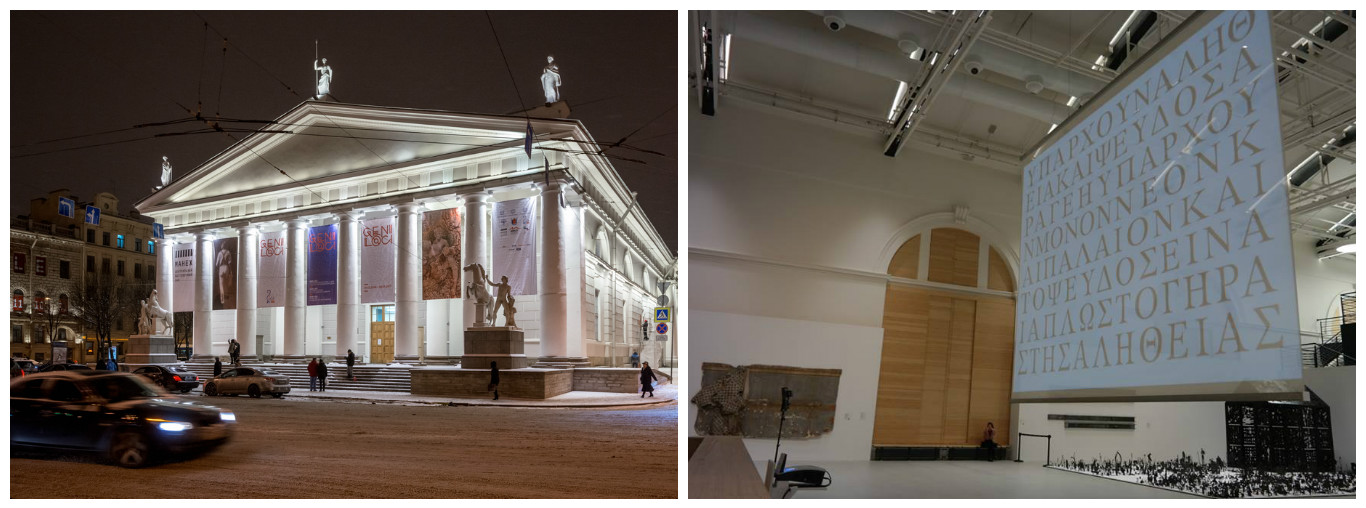 Apart from the three flagship events, the program included exhibitions of photography, of religious icons, as well as of artworks by contemporary artists (Christos Bokoros, Spyros Papaloukas, Stratos Kalafatis, Alekos Fasianos, Nikos Floros). The Greece in Russia program also included theater performances and concerts, while Greece was the honored country at ΧΧΙΧ Moscow International Book Fair and the 5th St. Petersburg International Cultural Forum.
Apart from the three flagship events, the program included exhibitions of photography, of religious icons, as well as of artworks by contemporary artists (Christos Bokoros, Spyros Papaloukas, Stratos Kalafatis, Alekos Fasianos, Nikos Floros). The Greece in Russia program also included theater performances and concerts, while Greece was the honored country at ΧΧΙΧ Moscow International Book Fair and the 5th St. Petersburg International Cultural Forum.
The Secretariat General for Media and Communication organized a children’s drawing contest on the theme “What Greece means for me” for children 6-10 years old from Russia. The action aimed to enhance Greece’s visibility among the younger Russian audience and, with more than 1,200 entries, the contest was considered a huge success. The audience voted online and the 4 winners with their families will have the opportunity to visit Greece this summer.
Science, Research & Education
Culture and science interacted harmoniously in actions that combined art with scientific research, such as the symposium in Tretiakov Gallery, where Greek and Russian researchers discussed the contribution of technology to the maintenance, study and restoration of Byzantine icons. Moreover, Attica Region and the National and Kapodistrian University of Athens sponsored the presentation of the Antikythera Mechanism in a massive exhibition at the Moscow State Museum of Architecture as well as the All-Russian Science Festival in the Russian capital, while the Region of Northern Aegean presented the exhibition “Aegean – The birth of an Archipelago”, at the Moscow Polytechnic Museum.
Other scientific collaborations included the cooperation agreement between University of Patras and Russia’s Central Aerohydrodynamic Institute (TsAGi) and the Cooperation Pact in quantum technologies signed by the Education Ministries of the two countries. Russian and Greek universities hosted various conferences that focused on Greek history and studies, Greek-Russian relations and cooperation in agriculture, while the Greek Centre for Renewable Energy Sources with the Russian Energy Agency organized a Forum on renewable energy sources and energy saving.
On November 10, 2016, the Russian Minister of Education, Olga Vasilieva, signed a decision that provides for Greek to be taught as a foreign language in Russian schools as of January 1, 2017. In addition, an agreement on Cooperation in Science, Technology and Innovation between the ministries of Education of the two countries was signed during the Russian minister’s visit to Athens
Economy & Tourism
Seizing on the opportunity of the celebratory year, Enterprise Greece intensified its extrovert actions by participating in 7 exhibitions in Moscow and St. Petersburg and organizing business missions.
Furthermore, the Greek National Tourism Organization promoted Greece in a series of high status tourism exhibitions is Moscow and St. Petersburg, and organized events aimed at a wider Russian public with tastings and cooking class evenings to promote Greek food and wine.
What 2017 holds for Greek-Russian Relations?
Building on the fertile ground established during the celebratory year, the institutions involved are in a position to expand the field of exchanges, synergies and cooperation schemes. For a start, the two countries have agreed to launch a dedicated “Year of Tourism”, which will last from October 2017 to October 2018.
In order to cover events, exchanges and initiatives that will be undertaken following the celebratory year, the Secretariat General for Media and Communication will continue to update the website www.elru2016.gr and maintain an active presence in Social Media providing news, interviews and feature articles on both countries, including from the Greek regions and the Greek Diaspora, in an effort to further promote relations between the two peoples.

